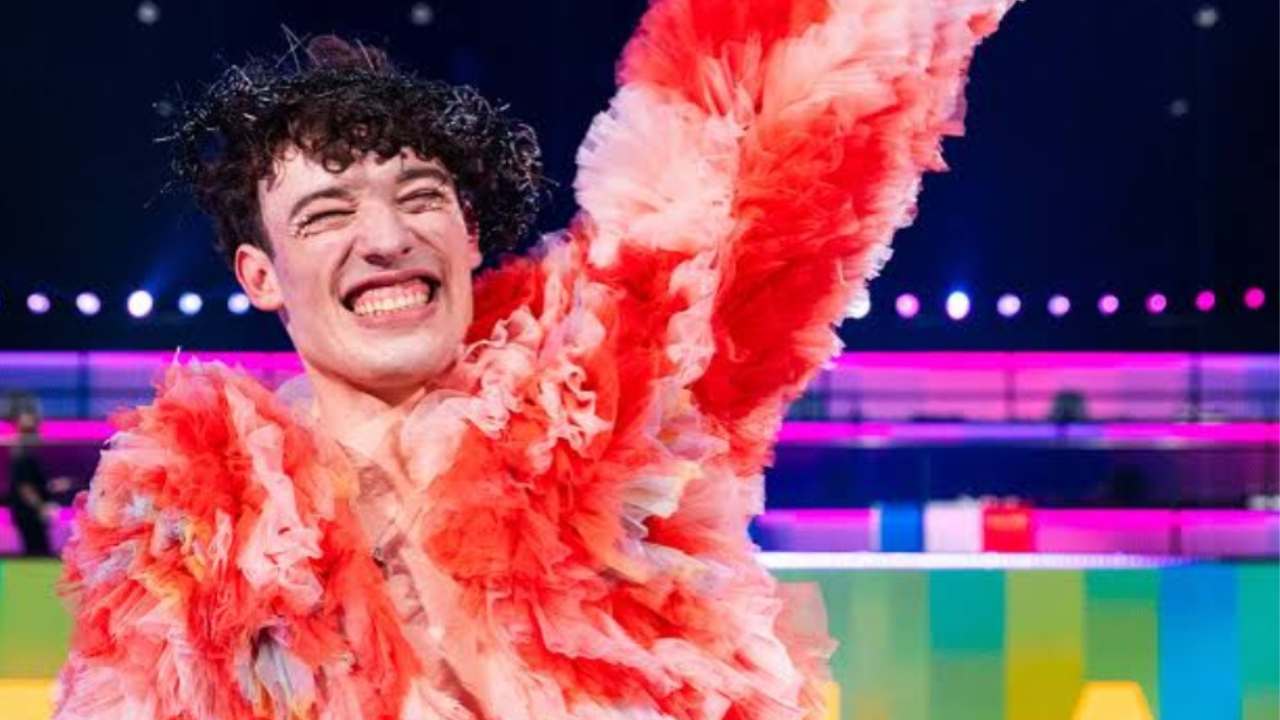Switzerland emerged victorious in the 68th Eurovision Song Contest, concluding a tense and sometimes tumultuous competition overshadowed by controversy over Israel’s participation and the last-minute disqualification of the Dutch contestant just hours before the grand final commenced.
Nemo, a Swiss singer who identifies as non-binary, entered the evening as the third favorite according to bookmakers but triumphed over frontrunners Croatia and Israel with an impassioned performance of their song “The Code.”
Their operatic, drum’n’bass-infused rendition soared to victory in the jury vote, constituting half of the total score.
Amidst the musical spectacle, attention veered towards other matters as Dutch contestant Joost Klein was disqualified from the grand final due to an “incident” involving a female member of the production crew.
The Dutch broadcaster, which sent Klein to the competition, expressed shock at the “disproportionate” decision and refused to allocate points from its jury at the conclusion of the show.
The suspension intensified an already politically charged environment, particularly as Klein had seemingly expressed his disagreement with Israel’s participation during a press conference on Thursday.

He vocally supported a journalist who questioned Israel’s contestant, Eden Golan, about the potential risk her presence posed to other acts and attending fans.
Israel had received clearance to participate in the competition from the European Broadcasting Union (EBU) in March, following alterations to some of the lyrics of Golan’s power ballad “Hurricane.”
Originally titled “October Rain,” the song delves into the harrowing experience of Hamas’s massacre on 7 October.
However, the debate over Israel’s participation amidst ongoing military conflict in Gaza persisted leading up to the five-day extravaganza in Malmö, Sweden.
Pro-Palestine activists made unsuccessful attempts to rally participating artists to boycott the event.
In a sizable demonstration in Malmö city center on Saturday, several thousand protesters brandishing Palestinian flags voiced their stance that Israel should not have been permitted to compete, drawing parallels to Russia’s exclusion since 2022 as a precedent.
Following the demonstration, some protesters transitioned to the concert venue located south of the city center, directing chants of “Shame on you” towards fans entering the arena. Approximately 30 individuals were detained by police.
Within the confines of the arena, the boos were largely eclipsed by cheers as Golan graced the stage. Despite the controversy, Israel garnered strong support in the public vote, securing second place behind Croatia.
Organizers of Eurovision swiftly dispelled rumors suggesting that Klein’s suspension incident involved any other performers, delegation members, or an altercation with the Israeli delegation.
“Swedish police have investigated a complaint made by a female member of the production crew after an incident following his [Klein’s] performance in Thursday night’s semi-final,” they said, reiterating “a zero-tolerance policy towards inappropriate behaviour at our event”.
Avrotros, the Dutch broadcaster, expressed profound shock at what it deemed a “disproportionate” decision.
In their statement, they clarified that Klein, the singer and rapper, had only made a “threatening move” towards a camerawoman without physically touching her.
“Against the clearly made agreement, Joost was filmed when he had just gotten off stage and had to rush to the green room. At that moment, Joost repeatedly indicated that he did not want to be filmed. This wasn’t respected.”
The Dutch broadcaster asserted that it presented “several solutions” to the European Broadcasting Union (EBU), which opted to disqualify Klein regardless.
Eurovision’s executive director, Martin Österdahl, faced audible booing from the audience whenever he appeared on screen during the show.
As speculation swirled about the reasons behind Klein’s suspension, tension mounted in the dressing rooms at Malmö Arena.
Ireland’s entry, non-binary singer Bambie Thug, was notably absent from the final dress rehearsal, sparking rumors of their withdrawal from the event.
In a subsequent statement, Bambie Thug cited a separate disagreement with the EBU, specifically regarding the conduct of Israel’s public broadcaster, Kan, during the first semi-final.
Meanwhile, French performer Slimane seized a moment during the dress rehearsal, interrupting the a cappella segment of his song “Mon Amour” to deliver a speech advocating for “love and peace.”
In Norway, former contestant Alessandra Mele withdrew from her role as the spokesperson for delivering the jury points, citing concerns over the “genocide” in the Middle East.
Amidst a backdrop of political discord, the Swiss entry served as a unifying beacon. Singer Nemo Mettler joins the ranks of past Eurovision contestants who identify as queer, transgender, or drag performers, following in the footsteps of icons like Israel’s Dana International in 1998 and Austria’s Conchita Wurst in 2014.
Their performance of “The Code” was marked by high drama, while the stage show captivated audiences with its simplicity, featuring the artist’s acrobatic maneuvers atop a spinning platform.
Switzerland’s entry was among several that defied Eurovision’s reputation for showcasing generic eurodance tunes.
Croatia’s Baby Lasagna, known offstage as Marko Purišić, emerged as both a favorite among bookmakers and fans with “Rim Tim Tagi Dim,” a song blending elements reminiscent of Jon Bon Jovi with the intensity of Rammstein.
Meanwhile, Italy’s Angelina Mango showcased her country’s rich musical heritage with a powerful steelpan performance on the unexpected theme of boredom.
Britain’s representative, Olly Alexander, landed in 18th place with his song “Dizzy,” failing to secure any points in the audience vote.
Klein, a 26-year-old former YouTuber hailing from Friesland, had been anticipated to leave a mark on the competition, albeit in a different manner.
His multilingual song “Europapa,” featuring lyrics in Dutch, German, Italian, and English, accompanied by a video culminating in an image of a “European house” engulfed in flames, would have marked the first Eurovision entry about the European Union since Toto Cotugno’s “Insieme 92,” which alludes to the signing of the Maastricht Treaty in that year.
Amidst the pro-Palestine rally in the city center on Saturday afternoon, one participant brandished a placard declaring “Twelve points go to Joost Klein.”
The intersection of politics and pop culture had created a web of complexities that proved challenging to unravel.





